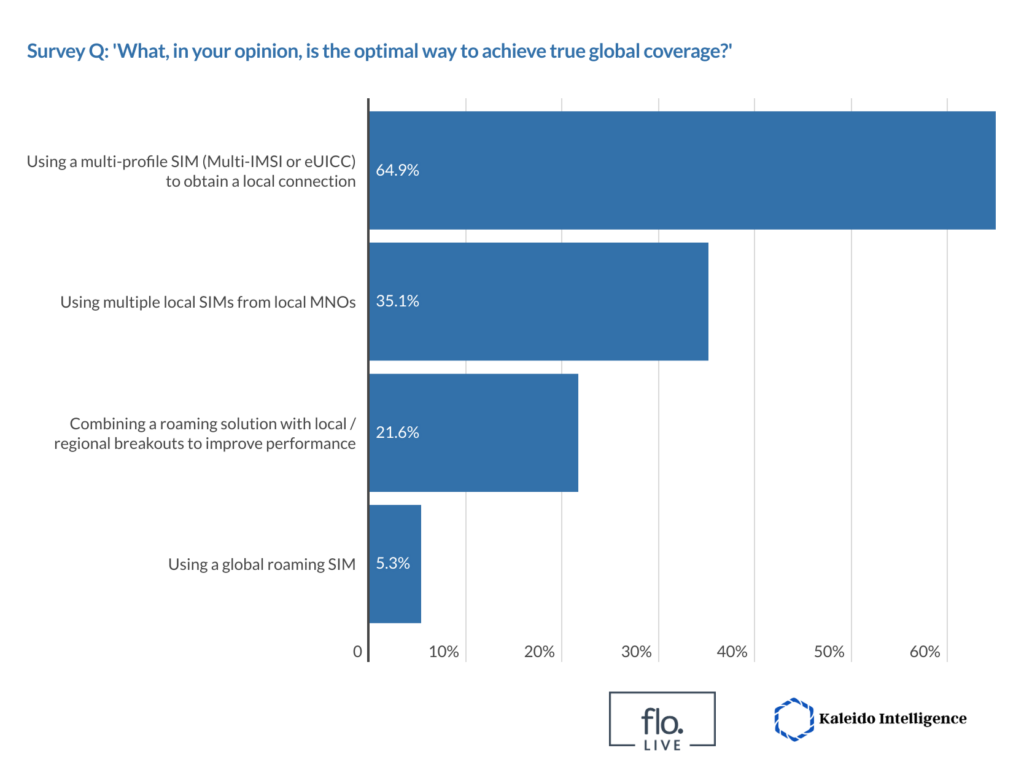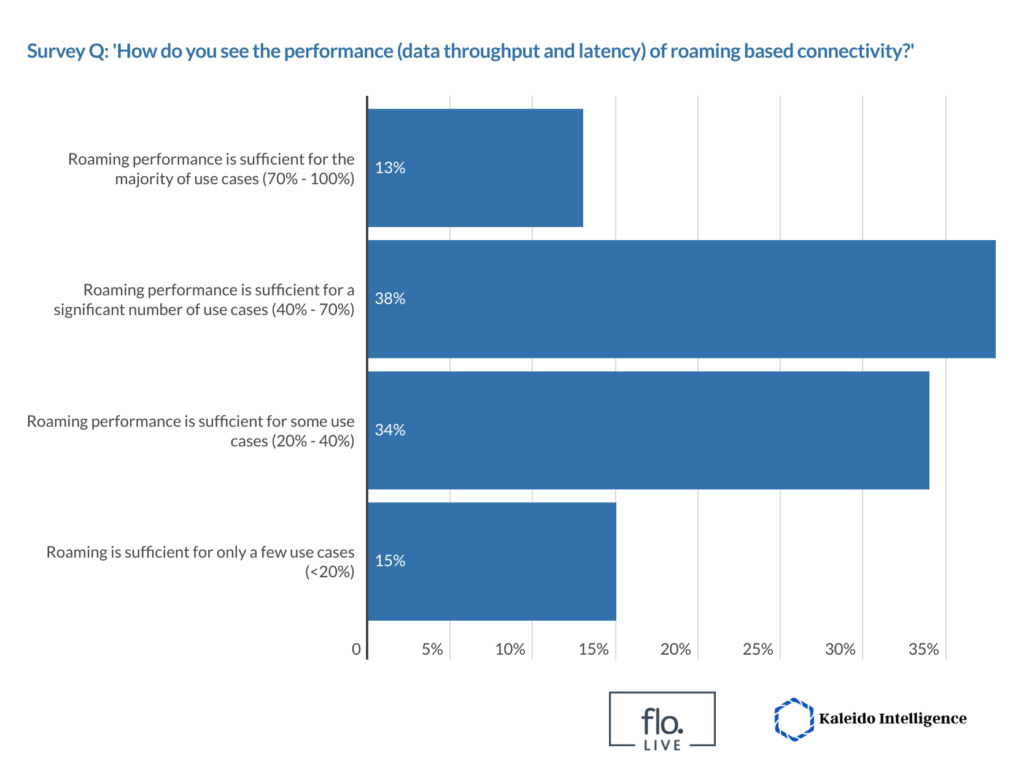floLIVE, Kaleido Intelligence Survey: Majority of Connectivity Service Providers Cannot Rely on Roaming SIM

Connectivity service providers do not believe a roaming SIM can meet the complex demands of customers’ connectivity requirements
LONDON, UK – 7 February 2024 – floLIVE, creator of the world’s first and largest global cellular infrastructure and a leading provider of global connectivity and network services for IoT, is releasing the results of a global survey of connectivity service providers (CSPs) conducted by leading analyst firm Kaleido Intelligence. The overwhelming majority of respondents in the survey have explicitly stated that a roaming SIM is an unreliable approach to global connectivity.

The survey, sponsored by floLIVE, gauged the state of IoT connectivity as told through the lens of the respondents, both Mobile Virtual Network Operators (MVNOs) and IoT Service Providers (IoT SPs) who deliver connectivity solutions to OEMs and enterprise customers worldwide. A staggering 95 percent of the respondents believe that a roaming SIM is inadequate for global connectivity solutions, with 86 percent of respondents stating that roaming SIM performance does not meet more complex requirements, mainly those related to performance and privacy regulations.

Achieving worldwide connectivity has historically been a significant challenge in IoT. Originally designed for consumer connectivity, roaming allows devices to connect to local networks outside of the home network for short periods of time, typically 30 to 90 days. Permanent roaming through roaming SIMs was a widespread approach in recent years that allowed foreign devices to connect to local networks longer permanently.
Rising roaming restrictions have removed roaming SIMs as an option entirely in numerous regulated countries. Performance can be poor due to roaming connectivity’s unreliability. The latency of communicating between home and local networks can be too great for many mission-critical IoT communications.
Alternate solutions have emerged to allow global connectivity to be achieved from a local approach, which eliminates performance and regulatory bottlenecks associated with roaming SIMs.
Both Multi-IMSI and eUICC technologies empower SIM cards with the ability to store different profiles and be provisioned remotely over the air (OTA). This allows devices to be deployed from one region yet connect to another or allows moving devices to connect to provisioned networks along routes, such as in fleet or logistics solutions.
Well over half of the respondents (64 percent) stated that they believe Multi-IMSI and/or eUICC are more reliable approaches to global connectivity.
“Global connectivity has long been a challenge for IoT,” floLIVE CEO Nir Shalom said. “floLIVE is excited to stand at the forefront of robust and reliable connectivity that can be delivered both through Multi-IMSI and eUICC powered through local networks hosted on our flexible, resilient core infrastructure.”
The shift in global connectivity approaches through solutions designed for IoT can help usher in greater adoption of this technology segment.
“IoT has been anticipating a closure in this gap of how global connectivity is delivered. The survey results indicate that the major players in this industry are seeing that the traditional approach to worldwide connectivity simply is not working anymore. Their customer requirements are too complex and too crucial to rely on an approach that was never meant to be long-term,” said Steffen Sorrell, Kaleido Intelligence Chief of Research.
Download the full report “Navigating the Challenges and Opportunity of Shifting IoT Connectivity Demands” from floLIVE and Kaleido Intelligence to see the full survey results. To hear more directly from Shalom and Sorrell, register for the webinar “IoT Connectivity in 2024” to discuss the survey results on February 14 at 10 a.m. ET/3 p.m. GMT.










